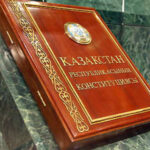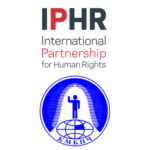7 December 2021
Ms. Michèle Coninsx
Executive Director of the Counter-Terrorism Committee Executive Directorate (CTED) by e-mail: michele.coninsx@un.org
Dear Ms. Coninsx,
The undersigned organizations write to you to express concerns and to seek clarification on the process of updating the UN Compendium of recommended practices for the responsible use and sharing of biometrics in counter-terrorism (the ‘Compendium”).
As non-governmental organizations dedicated to protecting and promoting human rights, we work closely with UN bodies to support their activities where they are aimed at ensuring that government counter-terrorism policies and practices comply with the rule of law and international human rights law.
While UN Security Council’s resolution 2396 and other relevant documents, such as the 2018 Addenda to the Madrid Guiding Principles, demand that the development of systems of collection, processing and sharing of biometric data is in compliance with international human rights law, they do not provide guidance to member states on how to apply these human rights standards. This is a significant gap that needs to be urgently addressed as more and more governments adopt biometric technologies for counter-terrorism purposes in violation of human rights obligations.1
Notably, this gap has not been bridged by the Compendium. Since its publication in 2018, analyses by independent experts2 and civil society organizations3 noted how the Compendium fails to comprehensively address the human rights implications of the use of biometric technologies for counter-terrorism purposes. Instead, its recommended ‘best practices’ are by-and-large supportive of governments and industry trends towards ever expanding application of biometric systems and the sharing of biometric data within and across jurisdictions, without providing member states with specific guidance on necessary safeguards to ensure compliance with human rights obligations in the process. Of particular concern is the almost unqualified support for ever expanding biometric databases (and the integration of existing ones) coupled with expanding access to the biometric data to an ever-wider range of law enforcement and security agencies. These concerns were highlighted during a virtual event of the UN counter-terrorism week in June 2021.4
1 See case studies published by Privacy International in 2021, Biometrics collection under the pretext of counter-terrorism, https://privacyinternational.org/long-read/4528/biometrics-collection-under- pretext-counter-terrorism
2 Dr. Krisztina Huszti-Orbán and Prof. Fionnuala Ní Aoláin, Use of Biometric Data to Identify Terrorists: Best Practice or Risky Business?, 2020, https://www.ohchr.org/Documents/Issues/Terrorism/Use- Biometric-Data-Report.pdf
3 Privacy International, Responsible Use and Sharing of Biometric Data in Counter-terrorism, 2020, https://privacyinternational.org/sites/default/files/2020- 07/Responsible%20use%20and%20sharing%20of%20biometric%20data%20in%20counter- terrorism.pdf
4 For a summary of the event, see: https://ecnl.org/news/upholding-human-rights-regulation-and- use-biometrics-technology-counter-terrorism-law-and
Given these long-standing and widely held views, we would be very concerned if any process of updating the Compendium is conducted without prior and ongoing consultation with human rights experts and non-governmental organizations.
We encourage you to promptly set up a transparent process of consultation with independent human rights experts and civil society organizations with the view to develop precise and comprehensive guidelines for member states following a human rights based approach on the use of biometric technologies for counter-terrorism purposes as required by UN Security Council Resolution 2396.
We thank you for your attention in this matter and we look forward to your response. Yours sincerely,
Amnesty International
Association of Freedom of Thought and Expression (AFTE) Cairo Institute for Human Rights Studies
CIVICUS
European Center for Not-for-Profit Law Fair Trials
Human Rights Watch Human Security Collective
International Center for Not-for-Profit Law International Commission of Jurists
Kazakhstan International Bureau for Human Rights and the Rule of Law Kenya Human Rights Commission
Privacy International
Rights and Security International
Sova Center for Information and Analysis Spaces for Change
Cc:
Mr. Vladimir Voronkov, Under-Secretary-General of the Office of Counter-Terrorism Ms. Michelle Bachelet, High Commissioner for Human Rights
Mr. Volker Peter Türk, Assistant Secretary-General for Strategic Coordination
Ms. Fionnuala Ní Aoláin, UN Special Rapporteur on the promotion and protection of human rights and fundamental freedoms while countering terrorism
















